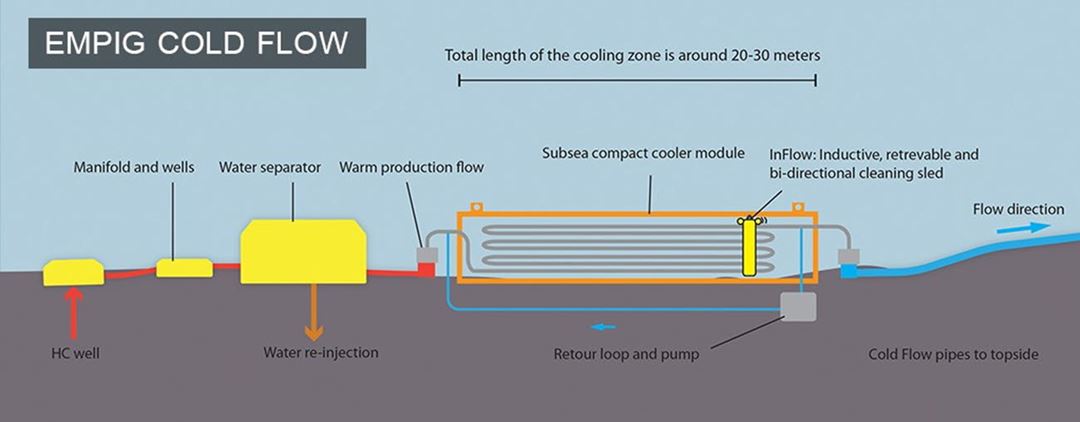EMPIG, in cooperation with Kværner, will develop an always-clean cooling system (ACS). The ACS is a continuously producing subsea cooler that cools a multiphase flow below the temperature for hydrate and wax formation, without downstream deposition or agglomeration. Realisation of this innovation results in reduced costs for oil and gas production in existing fields. Additionally, it makes it possible to open fields far from land, connect to tie-in hubs subsea, reduce environmental impact from oil and gas production and create new jobs in domestic oil and gas industry.
Transport of a multiphase flow at ambient sea temperature has the potential of large savings and will open up for new field opportunities. However, the technology to do this reliably has not been fully realized yet. EMPIG AS has developed and patented the "Always-clean Cooling System" (ACS) that will enable this. Hydrate and wax particles that form and deposit during the cooling process, are removed through a sequential heating process. The method operates without chemicals and can produce a multiphase flow without the risk of downstream plugging. The needs for pigging and thermal insulation of the pipe are therefore removed.
The technology is currently at a Technology Readiness Level 2 (TRL 2) and patented by EMPIG AS. The methods for wax and hydrat management are already tested and verified isolated by EMPIG and SINTEF, but not tested long-term as a system with real hydrocarbon flow.
Through multidisciplinary competence at SINTEF, and a close collaboration with Kværner, that will manufacture and assemble the main parts of the ACS prototype, the aim of the project is to take the ACS-concept to a higher TRL level through prototype testing.

The project is funded by the Research Council of Norway
